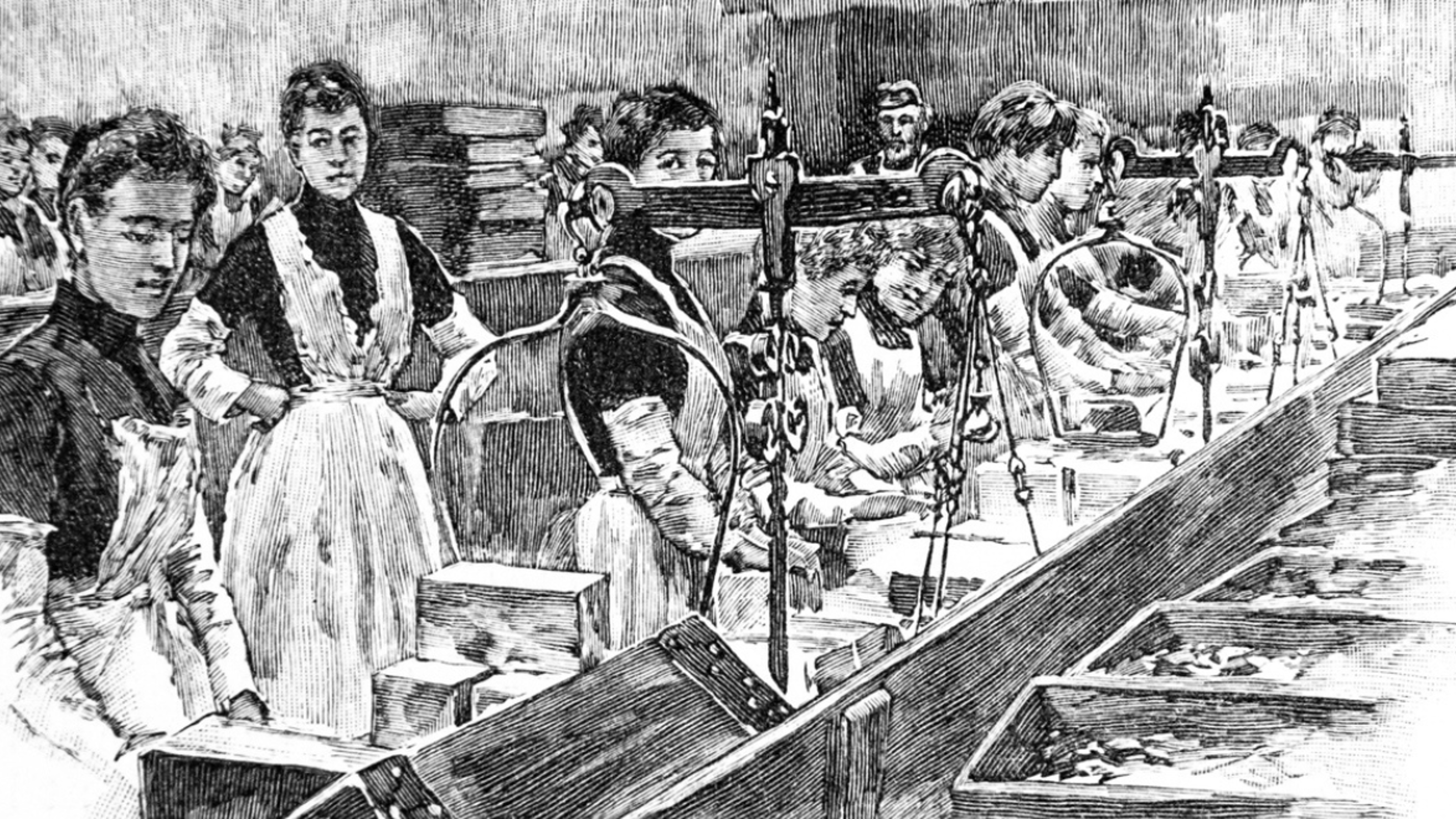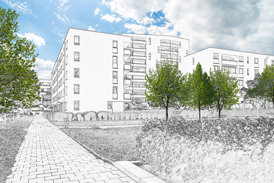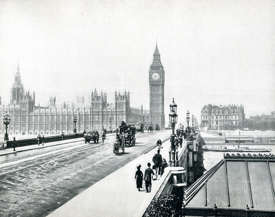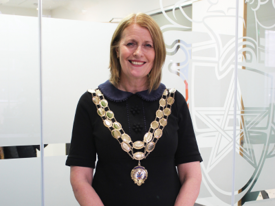Help us create an Environmental Health APPG
Join our campaign by urging your local MP to support the formation of an All-Party Parliamentary Group (APPG) on environmental health.
Friday, 8 March 2024, Lucy Salvage

This International Women's Day on 8 March is a fitting time to recognise the extraordinary contributions of women in shaping the landscape of environmental and public health. From historical pioneers to modern-day leaders, women have played a pivotal role in safeguarding communities and promoting health, safety, and wellbeing. We take a journey through history up to the present day to celebrate their achievements and explore the future of women in environmental health.
The Women in Sanitary Inspectors' Association was founded in 1896 by seven women sanitary workers based in London. In 1915 it was renamed the Women Sanitary Inspectors’ and Health Visitors’ Association. Whilst not much can be found to identify these remarkable women, their story stands as a beacon of resilience and determination in the face of adversity. At a time when women's voices were often silenced, alongside the challenges posed by living and working conditions in Victorian and Edwardian England, this organisation provided a platform for advocating improved sanitation and health standards that are now commonplace in communities across the UK. The organisation is known today as the Community Practitioners’ and Health Visitors’ Association.
Among the notable women who have left an indelible mark on environmental and public health history in the UK are:
A pioneering social reformer and co-founder of the National Trust, Octavia Hill was a tireless advocate for open green spaces and clean air in urban areas. Her efforts laid the groundwork for modern conservation and urban planning initiatives. As the Natural Trust testifies, the impact of her life and work are still being felt and her belief in the importance of the need to stop the destruction of the natural landscape is even more relevant today. Octavia made a successful name for herself in property management, transforming neglected properties in London into much-needed homes. Such was her success as a landlord, by 1874 Octavia had over 3,000 tenancies around London.

Image: An urban planning sketch. Source, iStock.
As one of the first female sanitary inspectors to qualify in London in 1893, Lucy Deane Streatfeild blazed a trail in occupational health and safety. Her later work for the Home Office as a factory inspector helped to ensure safe working conditions and protect the health of workers in factories across the country. During her time at the Home Office, Lucy was one of the first people in the UK to warn of the harmful effects of asbestos dust. Despite her warnings in 1898 and subsequent reports filed by other Women Inspectors of Factories, it was not until 1911 that clinical evidence was gathered indicating a connection between asbestos exposure and respiratory illness.
Rose Squire dedicated her life to improving housing conditions and combating infectious diseases. She was the first woman to gain a Sanitary Inspector’s Certificate in 1894. By 1912 she worked as a member of the Health of Munitions Workers Committee in the First World War and was appointed director of the women's welfare department of the Ministry of Munitions in 1918.

Image: The Houses of Parliament in Victorian England. Source, iStock.
A pioneering environmental health officer, Judith Denner broke barriers in a traditionally male-dominated field. Judith was central to what is currently known as Part2A of the Environmental Protection Act, the clause that lays down in statute the UK’s position on the assessment and designation of Contaminated Land. As B-Corp organisation Groundsure explains, as head of the Contaminated Land branch of the Department of the Environment in the early 1990s, she was fundamental in creating this cornerstone piece of legislation. The aim was to allow the UK to quantify the unknown contamination risks from historical activities and put provisions in place for its assessment and remediation. There’s little doubt that her dedication to community health and safety set a precedent for future generations of women in environmental health.
These remarkable women paved the way for progress in environmental and public health, leaving a lasting legacy of empowerment and advocacy, as have the women in our very own organisation.
Within CIEH women have played and continue to play pivotal roles as Chairs and Presidents, driving impactful change and shaping the organisation's trajectory. From past luminaries to present-day leaders, these women have demonstrated unparalleled dedication and expertise in advancing the mission of the CIEH.
Their achievements span a wide range of areas, including policy advocacy, research, education, and community outreach. Through their leadership, CIEH has remained at the forefront of environmental health practice, ensuring the health and wellbeing of communities across the UK and beyond.
Past female CIEH Presidents include:
Past female CIEH Chairs include:
Janet Russell OBE, became CIEH’s first female President in 2012. Qualifying as an EHO in July 1977, she was only one of two women in an all-male department and one of the first females to inspect the slaughterhouses of Wakefield. By 1998, Janet was appointed to the government’s Better Regulation task force. Janet continues to support CIEH in her role as Vice President, alongside Karen Buck MP, Ilora Finlay Baroness Finlay of Llandaff, Sarah Veale CBE, and Joan Walley.
Dawn Welham, an environmental health professional in the private sector, became CIEH President in 2018. Dawn’s passion for equality and fairness led to modern slavery becoming the theme of her presidency, in particular the role of environmental health professionals in fighting to expose this commonly hidden crime. Dawn is now a Quality Assurance Director for one of the UK’s leading supermarkets.
Julie Barratt launched the President’s Commission during her tenure with the aim of supporting people who were new to the profession. This included the set-up of a new mentoring scheme, launch of the Directory of Student Training Opportunities and the hosting of interactive exercises for candidates on the EHP pathway. Julie was also an enthusiastic participant in the review of the qualification process which led to the launch of the new EHP pathway.
You can meet some of our other female faces of environmental health by reading our numerous case studies; including, Francesa Bell, Theresa Fidge, Adele Masztalerz, Sandra Moore, Jennifer Parkinson, Carlene Thomas, and Abby Toms.
We are proud to have welcomed our fifth female Chair, Judith Hedgley, to our Board of Trustees last year, and already Judith is making her positive mark in this challenging yet rewarding role. Judith is an Environmental Health Officer with 33 years' experience working in local government. She is Head of the Public Protection Service at Middlesbrough Council responsible for a wide range of Environmental Health, Housing, Licensing and also public health functions. She is Chair of the North East Public Protection Partnership which represents the 12 local authorities in the North East.

Image: Judith Hedgley, current CIEH Chair
As we look further to the future, it's clear that the role of women in environmental health will continue to be indispensable. Women bring unique perspectives, skills, and expertise to the table, enabling them to tackle complex challenges and drive innovation in the field. However, despite significant progress, there remains a need for greater representation of women in environmental health roles. By breaking down barriers and fostering an inclusive environment, we can unlock the full potential of women to address pressing environmental and public health issues.
There is a plethora of opportunities available to women in environmental health, including roles in regulatory compliance, risk assessment, public health advocacy, research, policy development, the list goes on. By encouraging and supporting women to pursue careers in this vital field, we can create a more diverse and inclusive workforce, driving positive change for generations to come.

Help us create an Environmental Health APPG
Join our campaign by urging your local MP to support the formation of an All-Party Parliamentary Group (APPG) on environmental health.